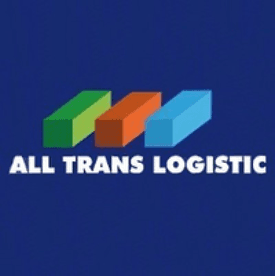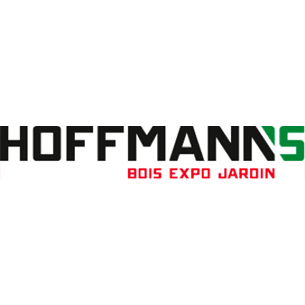
Warehouse jobs in Luxembourg: wages, requirements, documents
Warehouse jobs involve numerous professions, such as warehouse workers, forklift operators, order pickers, inventory managers and logistics coordinators. Take a closer look at the diversity of opportunities in this sector, explore and highlight the most in-demand warehouse jobs in Luxembourg.kills, available training, working conditions, and future prospects.
Fueled by the e-commerce boom and the ever-growing need for efficient logistics, warehousing jobs across Europe are experiencing a significant expansion. Industry experts predict steady growth for the sector, with key logistics hubs seeing a notable rise in demand. Luxembourg, strategically positioned in the heart of Europe with a well-developed infrastructure, is a prime example. This trend is reflected in the country's rapidly increasing number of warehousing positions, solidifying its critical role within the European supply chain network.
Overview of warehouse jobs in Luxembourg
Warehouse jobs fall under the logistics and supply chain sector, encompassing a wide array of tasks and professions. Warehouses are facilities where raw materials for manufacturing and finished products are stored before being distributed to their final destinations.
Main functions performed by professionals working in warehouses are:
Receiving and Storage Management
Inventory and Stock Control
Order Fulfilment and Shipping
Warehouse Operations and Safety
The primary goal of a warehouse is to ensure that stored items are available and in good condition when needed, while optimising costs and delivery times.
Types of warehouses and work areas
Warehouses are found across various industries, each with distinct functions and locations. Here are some of the most important types of warehouses and work areas:








Pros and cons of working in the warehouse
The role involves a variety of tasks crucial to the smooth operation of a distribution centre. These include receiving and meticulously verifying incoming shipments, ensuring accurate inventory control and more. This fast-paced environment demands a keen eye for detail, exceptional organisational skills, and a strict adherence to safety protocols.
Training and skills necessary to work in warehouses
Given the wide range of professions needed within a warehouse, the educational opportunities are equally varied, though many are directly related to logistics studies. Training programs for warehouse jobs come in all types and durations.
For more operational roles, it’s possible to enter the workforce without formal education. However, training can facilitate job searches, lead to better wages, and support career advancement. For roles such as inventory managers or logistics coordinators, formal education is imperative and often requires five years or more of study.
For some positions, such as forklift operators, no formal qualifications are required, but it is essential to acquire forklift operation skills and comply with safety regulations in handling environments. Obtaining one or more certificates, which can be acquired through short courses, is necessary. The most relevant certificates are the Certificats d'Aptitude à la Conduite des Engins de Sécurité (CACES).
In Luxembourg, these can be obtained through training programs in Handling Equipment offered by the Institut de Formation Sectoriel du Batiment.
This qualification offers highly advanced vocational training, leading either directly to employment or to further technical studies. Lasting four years, the DT program includes a minimum of 12 weeks of internship. Examples in Luxembourg include:
- DT Technician in Logistics offered by Lycée Technique de Bonnevoie
- DT Technician in Logistics offered by Lycée Technique de Lallange
The Diplôme d'aptitude professionnelle (DAP) allows entry into the job market as a qualified employee. The DAP program typically spans three years, including a minimum of 12 weeks of internship. An example of such training is the DAP Qualified Logistics Manager offered by Lycée Technique de Bonnevoie.
Access to warehouse jobs is also possible through higher education, such as a foundational engineering program with a specialisation in logistics. An example of such a master's degree in Luxembourg is the Master in Logistics and Supply Chain Management offered by the University of Luxembourg.
In addition to education and excluding job-specific competencies within the logistics sector, there are several common skills, including:
How to get a warehouse job in Luxembourg?
Now that we have reviewed the various training programs available, let's take a look at the available warehouse jobs in Luxembourg and examine which ones are most in demand.
Top-10 in-demand warehouse roles in Luxembourg
Within a warehouse, there are various areas of work and multiple specialisations or sub-areas. Below, we present a list of 10 key roles, each essential to the smooth operation of warehouse facilities in Luxembourg:










Which positions are most demanded in Luxembourg?
A plethora of industries require professionals in the warehouse and logistics domain, and the job market in this area in Luxembourg is abundant.
To go deeper into this question, we rely on the sectoral study conducted by the Ministry of Labour (MT) and the Employment Development Agency (ADEM), focusing on the transportation and logistics sector. This study sheds light on the most sought-after occupations and their representation rate among all declared jobs in this sector during the period 2015-2020.
Among the most sought-after jobs in Luxembourg in the logistics and transportation sector, warehouse worker positions rank fourth with 5.1% of declared vacant positions. Forklift operators also hold seventh position with 3.5% of declared positions, while logistics operators rank tenth with 2.9% of declared positions.

Luxembourg companies recruiting workers for warehouses
If you're intrigued by the warehouse industry and wonder where to find jobs in warehouse sectors in Luxembourg, we've got you covered. Whether you're seeking positions with minimal qualifications like forklift operator roles or aiming for higher-level positions like logistics manager, we'll guide you on where and how to search. We'll explore the leading job portals and examine the best avenues for finding work in Luxembourg.
For those residing outside Luxembourg and concerned about visa procedures, rest assured that it's possible to find warehouse jobs in Luxembourg with visa sponsorship. While this might not always be explicitly mentioned in job listings, some employers may be willing to assist with visa formalities. It's simply a matter of inquiring about this aspect at the right time.
Luxembourg establishments recruiting in warehouses
In Luxembourg, numerous establishments offer warehouse employment opportunities. Here's a list of 10 such companies along with links to their job offerings in this field:









Online portals for searching job in the warehouse
By using both online job portals and your personal network, you can upgrade your chances of finding warehouse jobs in Luxembourg.
The best place to research the job market is the internet, where numerous job portals host thousands of job listings. On these portals, you can filter job offers according to the sector you want to work in, location, level of education, or required work experience.
Among all the existing portals, some offer international or European-level job listings, while others are local, offering unique or predominantly Luxembourg-based job offers. Some platforms blend both worlds, being international platforms but having independent portals for each country.
International Portals
Luxembourg Portals
Another effective approach to job hunting is with your network of contacts. Networking is one of the most effective ways to find a job. Reach out to individuals in your network who work in your desired area in Luxembourg.
If you're seeking employment in Luxembourg but reside in another country, leverage your network to connect with friends or former classmates who have travelled and are now working in Luxembourg. You can also reach out to former colleagues who have relocated to Luxembourg, similar to your aspirations.
LinkedIn can be a valuable tool for connecting with professionals in your field, even if you don't know them personally. When reaching out, be sure to introduce yourself effectively and explain why you're contacting them. Some individuals may be willing to assist you. Also, aim to expand your professional network by joining professional organisations or attending events in your field of work.
Freelance and interim work in the warehouse in Luxembourg
Working independently, or as a freelancer, in the world of warehouses is possible, especially for certain types of highly skilled roles such as logistics consultants. Freelancing in logistics often involves providing specialised expertise and consulting services to companies on optimising their supply chain management, warehouse operations, or transportation logistics. However, opportunities for freelancing in warehouses may be more limited compared to traditional employment roles, primarily due to the specialised nature of the work and the need for established expertise in the field.
Temporary work in the logistics sector is prevalent, particularly for operational and less skilled positions such as forklift operators. This prevalence can be attributed to several factors. Firstly, the nature of warehouse operations often requires flexibility in staffing to meet fluctuating demand levels, seasonal variations, or short-term projects. Temporary workers provide a convenient solution for companies to address these fluctuations without committing to long-term employment contracts.
What else can you read on the topic of employment in Luxembourg?
You will find a variety of articles on job search, career development, and workplace culture in our dedicated section of the Blog. Check it out.
Salaries in warehouses in Luxembourg in 2024
Given the wide variety of professions within a warehouse in Luxembourg, salary ranges can vary significantly. To provide an initial overview, Paylab offers salary data for the logistics sector, which encompasses warehouse work. According to Paylab, salaries in the logistics sector range from a minimum average of 3,028 euros to a maximum average of 6,220 euros.
To gain a clearer understanding of the salaries for specific professions within this field, the following table provides average salaries for various positions in warehouses.
| Role | Minimum (euros) | Maximum (euros) |
| Supply Chain Specialist | 4,020 | 8,072 |
| Logistics Controller | 3,068 | 5,636 |
| Engine Driver | 3,001 | 6,017 |
| Logistics Clerk | 2,950 | 5,473 |
| Import/Export Officer | 2,879 | 5,357 |
| Dispatch clerk | 2,622 | 4,804 |
| Warehouse Manager | 2,578 | 6,160 |
| Forklift Truck Operator | 2,407 | 4,832 |
| Warehouseman | 2,353 | 4,446 |
| Distribution Clerk | 2,313 | 4,977 |
Wage one can count on
The salary range for warehouse professionals in Luxembourg typically spans from 3,028 euros (average minimum wage) to 6,220 euros (average highest median salary).
What papers do you need as a foreigner?
For European nationals, the process of working in Luxembourg is relatively straightforward, given the freedom to live and work in any European country. However, navigating the paperwork becomes essential if you are not a European national.
The requirements vary based on your circumstances, distinguishing between employed and self-employed roles. Additionally, familial situations, such as having a Luxembourgish or European partner, can impact the process.


Work permit in Luxembourg
Frequently Asked Questions (FAQ)
What qualifications are required to work in a warehouse in Luxembourg?
The qualifications required for warehouse jobs in Luxembourg vary depending on the role. Entry-level positions such as forklift operators or order pickers may not require formal education but often require certifications like the Certificats d'Aptitude à la Conduite des Engins de Sécurité (CACES). More specialized or managerial roles, such as stock managers or logistics supervisors, typically require higher education qualifications, such as a Diplôme d'Aptitude Professionnelle (DAP) or a Bachelor's degree in logistics or supply chain management. Relevant experience and skills in areas like inventory management, logistics software, and safety protocols are also highly valued.
Can I find warehouse jobs in Luxembourg with visa sponsorship?
Yes, it is possible to find warehouse jobs in Luxembourg with visa sponsorship. While not all job listings explicitly mention visa sponsorship, some employers are willing to sponsor visas for qualified candidates, especially for roles that are in high demand or require specialized skills. It's advisable to directly inquire about visa sponsorship during the application process or interview stage.
Is temporary or interim work common in the logistics sector in Luxembourg?
Yes, temporary or interim work is quite common in the logistics sector in Luxembourg, especially for less qualified positions such as forklift operators and order pickers. This is due to the fluctuating nature of demand in logistics and warehousing, which often requires a flexible workforce to manage peak periods and seasonal variations. Temporary positions can also serve as a stepping stone to permanent roles within the company.
Source: www.hellowork.com, fr.indeed.com, www.yakaz-emploi.fr, www.institutnemo.com, www.ifsb.lu, www.ltb.lu, maison-orientation.public.lu, www.ltl.lu, www.uni.lu, men.public.lu, jobs.makesense.org, adem.public.lu, www.paylab.com
We took photos from these sources: ADEM, Moovijob, Timelab on Unsplash